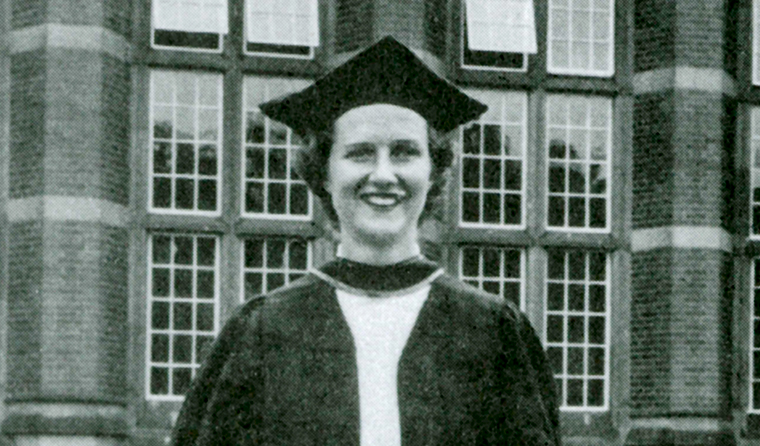Dr Margaret Hollands’ career was guided by a curious spirit that led her, not just into general practice at a time when relatively few women trained in the profession, but halfway across the world.
During Dr Hollands’ medical training at Birmingham University in England in the 1950s, there were about six male students to every female – although some begrudged even these proportions.
‘We were often told by male students, “You’re taking up a place which a male could have had”,’ she told the RACGP.
Despite this lack of generosity from some of her fellow students, Dr Hollands continued her studies undaunted, graduating in 1957. After several years of general practice work in England, Dr Hollands and her husband, David – also a doctor – decided they would like to ‘see the world’ and in 1961 boarded an ocean liner bound for Australia.
While the Hollands admit to having ‘itchy feet’ at the prospect of what was at the time a considerable journey to the other side of the world, they were also keen to practise a broader range of medicine.
‘We wanted to be rural GPs, where you could do a lot more of the things that you had been trained to do,’ Dr Hollands said.

After a brief stint in a local hospital in Hamilton, a regional town in south-western Victoria, the couple took over a general practice on the other side of the state.
‘We went to Orbost in 1963 and we stayed there for nearly 40 years,’ Dr Hollands said.
The small East Gippsland town certainly satisfied the Hollands’ wish for varied and challenging medicine.
‘We had to do everything,’ Dr Hollands said. ‘We had to deliver babies, I had to become an anaesthetist. And we had a hospital, so we were looking after our own patients in the hospital.
‘It was all a big challenge and a bit stressful at times, but very interesting, I must say.’
While the presence of a female GP was often very welcome news for many of the women in Orbost, it took a while before Dr Hollands had many consultations with male patients – although they could cope with the situation when necessary.
‘We did morning surgery on Saturdays and my husband used to play golf on Saturday afternoon,’ Dr Hollands said. ‘We hadn’t been there long when somebody came to the door on a Saturday afternoon and rang the bell. He said, “Is the doctor in?” I said, “Not at the moment, he probably won’t be back until about five o’clock”.
‘He looked at me for a few moments – I was probably carrying a baby or something – and he said, “Oh well, you’re a doctor. You’ll do”.
‘But, of course, all of that changed over the years and I found that I had a lot of male patients as well as women.’
In the course of her long career in general practice, Dr Hollands has also written articles for medical media publications and even published a book in 2010, Orbost Hospital, about the town in which she and her husband lived and worked for so long. She has never tired over the decades of the patient stories she came across in her role as a GP.
‘General practice is like having a ring-side seat at the greatest show on earth,’ Dr Hollands said. ‘People come in, sit down and they tell you the most amazing stories.’
Blog Post created by RACGP Media on 18-Sep-2017
The third in a short series of articles focusing on the RACGP’s first female members and their experiences in an earlier time.